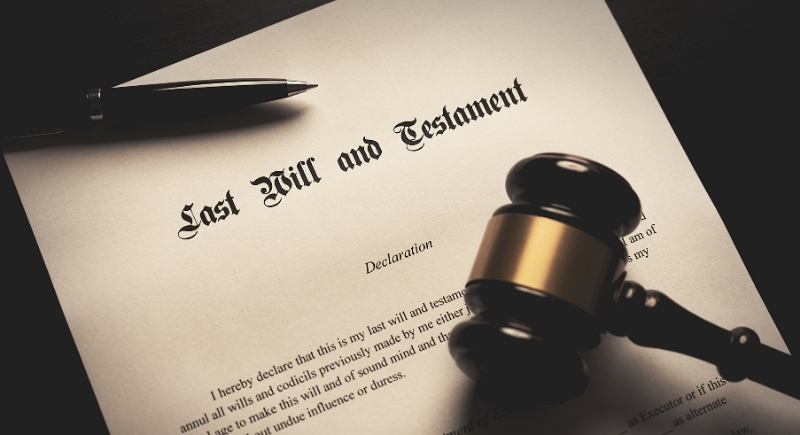The Worst Financial Advice Your Friends Are Giving You About Your Will
People often repeat “rules” about wills with total certainty, but several of those rules are myths. The wrong guidance can cause expensive legal fights, delayed inheritances, and outcomes you never wanted. These common pieces of bad advice show up in conversations all the time. Here’s how they create problems and why you should think twice before following them.
You Don’t Need Witnesses

Credit: iStockphoto
The belief that a signature alone makes a will valid ignores legal requirements. Most states require two adult witnesses to watch you sign and then sign themselves, and they must not benefit under the will. Skipping this step risks having the will declared invalid. When that happens, the state’s default inheritance rules apply instead.
Once Written, Always Done

Credit: Canva
Thinking of your will as a one-time task is a mistake that catches many people off guard. Life events like marriage, divorce, or the birth of a child can make old instructions outdated. Laws can also change. Without regular reviews, you might leave property to someone no longer in your life or forget to include new beneficiaries.
Your Will Covers All Assets

Credit: iStockphoto
Retirement accounts, life insurance policies, and certain bank accounts use beneficiary forms that override your will. If you forget to update those forms, they can send assets to someone you no longer want to benefit. This happens typically after divorces or remarriages. Review both your will and these designations together so they align.
Stepchildren Are Automatically Included

Credit: Getty Images
Inheritance laws don’t treat stepchildren like biological or adopted children unless you have legally adopted them. They get nothing under the default state rules without their names in your will. Individuals often learn this only after settling an estate. Naming them specifically and describing what they should receive avoids misunderstandings.
Digital Accounts Are Irrelevant

Credit: pexels
Include your digital accounts in your estate plan and appoint a digital executor with access to them. Provide clear instructions for which accounts to close, preserve, or transfer. This preparation ensures that online banking, cryptocurrency, cloud storage, and investment platforms remain accessible.
Writing Wishes by Hand Works

Credit: iStockphoto
Handwritten wills, sometimes called holographic wills, are valid only in certain states and under strict rules. Even then, vague language can make them easy to dispute. A court may reject unclear instructions or revert to default state laws. Using proper legal formats and required formalities ensures your intentions stand in probate.
Crossing Out Items Later

Credit: iStockphoto
Changing your will with a pen after it’s been signed and witnessed doesn’t work legally. Courts ignore those changes because they bypass formal amendment processes. The proper way to update a will is to create a codicil or draft a new will, both signed and witnessed.
Executor Choice Without Thought

Credit: iStockphoto
You risk serious delays and costly mistakes if you choose a representative only because you trust them. The role demands time, organization, and the ability to manage legal and financial responsibilities for months. An unprepared executor can mishandle paperwork, frustrate recipients, or miss deadlines.
No One Will Contest It

Credit: Getty Images
Disputes over wills are more common than many expect. Leaving someone out without explanation or dividing assets unusually invites challenges. Courts can modify or overturn unclear provisions. For this reason, a detailed will can make it harder for challengers to convince a court to override your written instructions.
You Don’t Have Enough to Need One

Credit: iStockphoto
A will is valuable even for modest estates. Life insurance payouts, retirement savings, and personal items can add up quickly. Without a will, state laws decide who inherits, and that may not match your preferences. A will also lets you name guardians for children or appoint caretakers for pets.
Funeral Wishes in the Will

Credit: Getty Images
Sharing your funeral wishes with family or your proxy while you are alive ensures they can follow them exactly when the time comes. Keeping instructions in an accessible place allows decisions to be made confidently and without guesswork. Relying on a will for these details fails, as it is usually read after the service.
Taxes Won’t Apply

Credit: Getty Images
While federal estate taxes affect only very large estates, various states impose taxes on much smaller ones. Ignoring this can reduce what your loved ones receive. Some states tax the estate itself, while others tax inheritances. Strategies like charitable giving or trusts can limit tax impact.
Joint Property Goes in the Will

Credit: iStockphoto
People believe they can leave jointly owned property to anyone they choose through their will, but rights of survivorship override those instructions. Such property automatically transfers to the surviving owner, no matter what the will says. If you want a different outcome, you must change the ownership structure during your lifetime.
Photocopies Are Fine

Credit: Getty Images
Courts usually require the original, signed will for probate. In case this is not present, your executor might face delays or opposition proving its authenticity. Safekeep the original in an accessible location and tell your delegate where to find it. This simple step ensures the process begins smoothly and reduces the chance of costly disputes.
Debts Don’t Affect Gifts

Credit: Getty Images
Review any debts attached to a home or investment before deciding who will receive it. Addressing these liabilities in advance prevents an heir from inheriting both the asset and an unexpected financial burden. Otherwise, they may have to sell the property just to cover the balance owed.